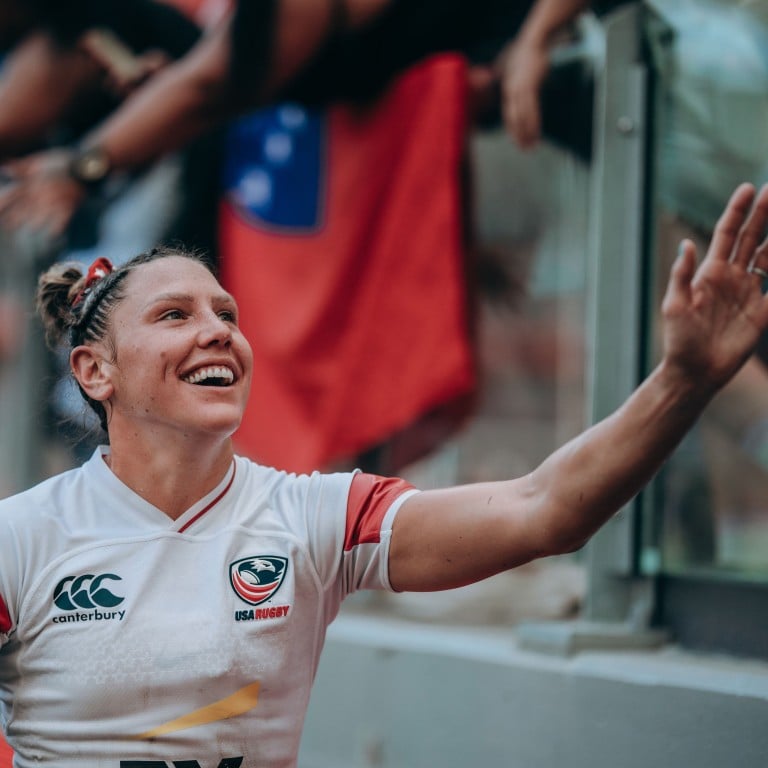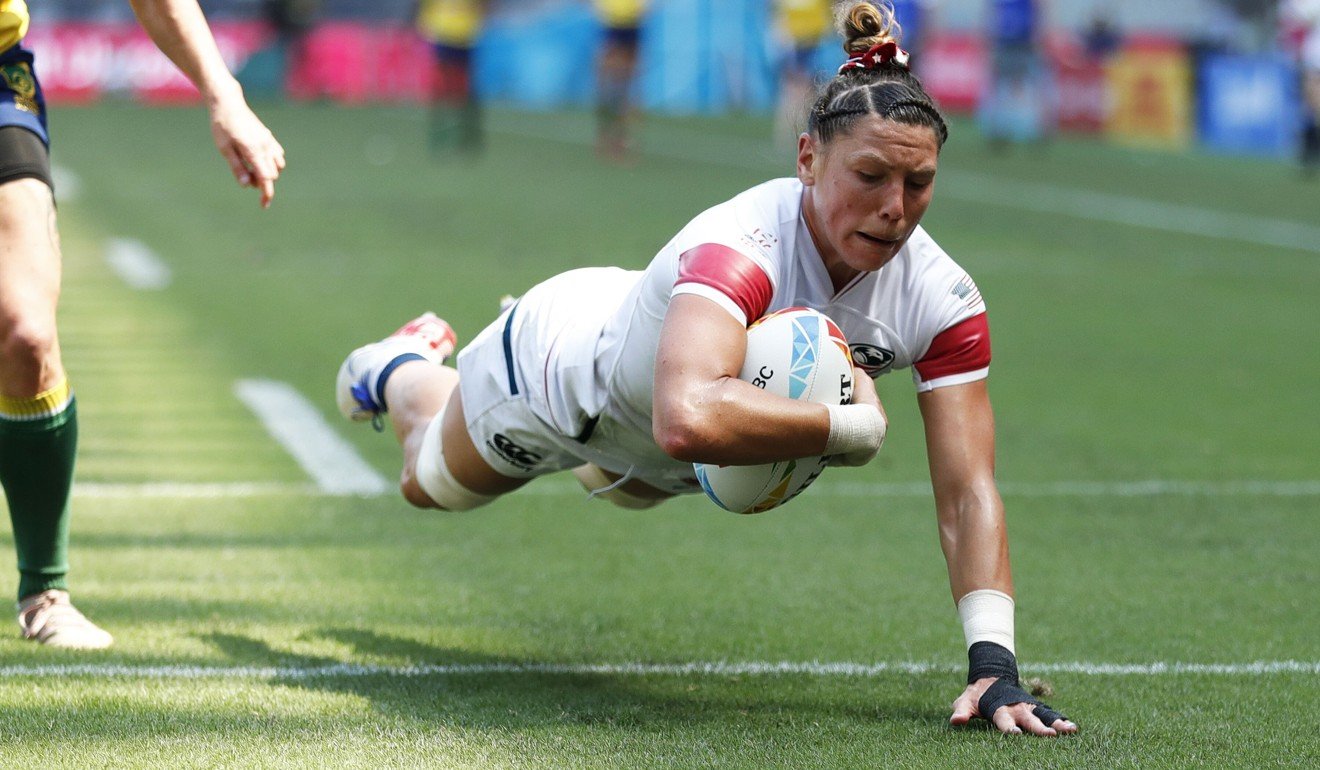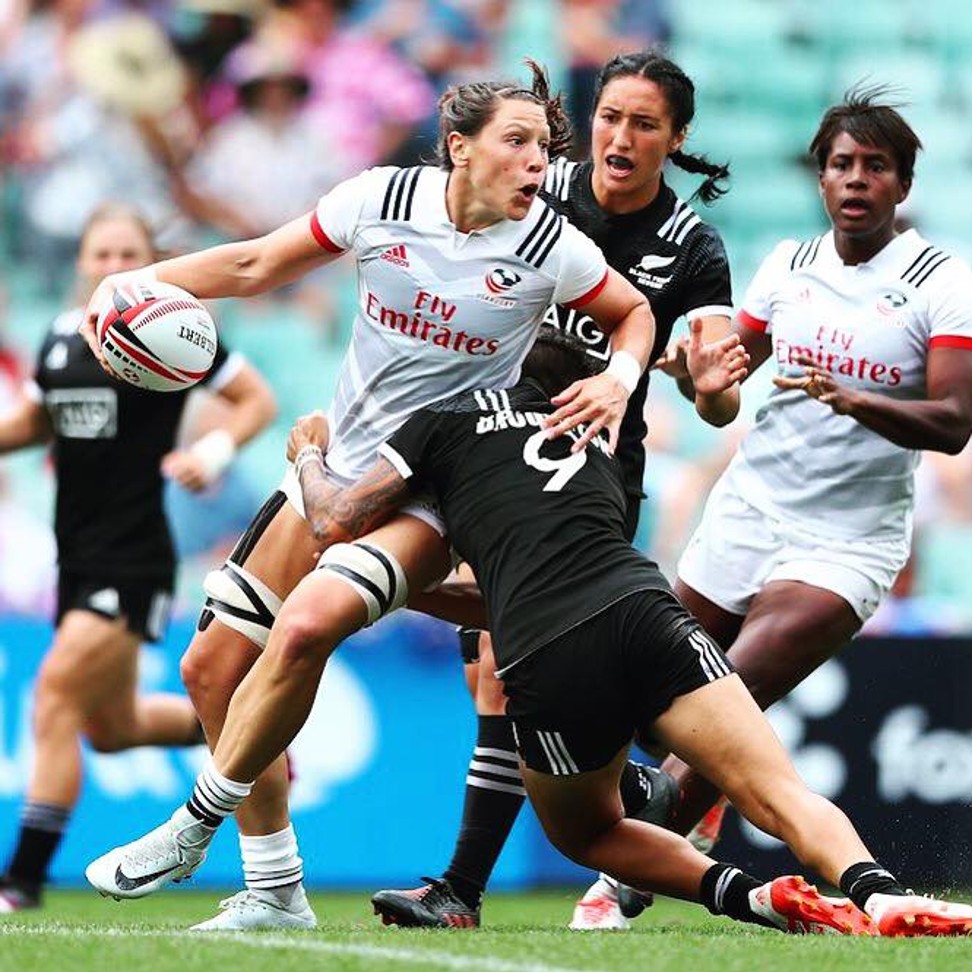
Tokyo 2020: emergency medical technician turned US women’s rugby captain looks to help Eagles find Olympic glory
- Abby Gustaitis is a certified emergency medical technician who plays professional rugby for a US squad hunting for gold in Tokyo
- The 28-year-old says the two vocations share a lot of similarities when it comes to responding to stressful situations
Abby Gustaitis remembers having a rather unpopular conversation with her parents in 2015. Set to graduate from the University of Maryland, a short drive northwest from Washington, D.C., she was primed to enter medical school in the hope of becoming a doctor. Instead, she decided to play sevens rugby, which at that point was about as fringe as sports in the US could get.
Gustaitis, 28, said her mum was anything but happy.
“She was not pleased,” Gustaitis said with a chuckle. “I was the first person in my family, immediate or extended, to go to university, so it was a big deal to my family that I pursed an education in the first place so they were super proud of me graduating.”
What must have felt like a hare-brained decision at the time has turned out fine for Gustaitis, who has compiled an impressive career with the women’s team which includes her co-captaining the side which sits fifth in World Rugby Sevens Series 2019-20 season after five legs.
“So it was a bit of a slap to the face,” she said about the initial conversation some five years ago. “You know, ‘Scratch that, I’m sort of going to go do the opposite and go hit some people and toss a ball around.’ But in the end they’ve come to love the sport and have travelled to watch me play and they’ve fallen in love with it, and are super excited to watch me achieve this dream.”
The dream is one of the biggest for any athlete: gold at the 2020 Tokyo Olympics, the second time sevens will feature since being introduced at the 2016 Games in Rio de Janeiro. Gustaitis said the planning for Japan started right after Brazil, and everything now is zeroing in on July, despite fears the Olympics might be cancelled due to the coronavirus.

“It’s not something that’s at the forefront of our minds,” she said about planning for a once in a lifetime opportunity that might never materialise. “Because we don’t want to have any hesitations in our mindsets heading into the Olympics. For whatever reason if it does get cancelled that is something we will deal with at that time.”
Gustaitis first found rugby in 2010 during university after an impressive high school basketball career. After joining the US Rugby national programme in 2015, she got to compete at the Rugby World Cup in 2017 for the 15s squad in which the US came fourth. She then she joined the sevens team in Dubai soon after, winning a silver medal that season. Her accolades also include two series wins, in France and the US this past year.
But before rugby took hold of her life and pulled her away from medical school ambitions, Gustaitis was working one of the most demanding and stressful jobs civilians can do: as an emergency medical technician. She got certified at 16 while still in high school (both her parents were part of the local fire department) in Pylesville, Maryland, and found herself on the front lines from an early age when it came to the world of first responders.

From 2008 to 2014, Gustaitis found herself heading to the worst of the worst – car accidents, trauma incidents, situations where most people would find themselves running in the opposite direction.
“There are some super tense and stressful times,” said Gustaitis, adding she is still certified as an EMT in the state of Maryland. “Especially when you are the first person to arrive on the scene.”
But the worst ended up bring out the best in her.
“It was stressful, in a way where I was confident and I thrived, instead of panicking it was a way to zero in and put all of your attention and focus on one thing, and you knew that you could help that person. That you had the knowledge and capabilities to assist them, or if you didn’t, you knew who to call. It’s not for everyone, especially if you don’t like blood.”

Now she spends her time competing in one of the world’s most intense sports, a full contact game boiled down into seven-minute halves of what can sometimes look like pure chaos to the untrained eye. Gustaitis said there are definitely some similarities between the two vocations she has practised in her life.
“It’s sort of like rugby sevens,” she said about being an EMT. “It’s a roller coaster. Your emotions go so high and then so low depending on the outcome you get. And you are not always going to get the outcome you want, but it’s how you respond to it that could potentially save someone’s life, or win you a game.”

